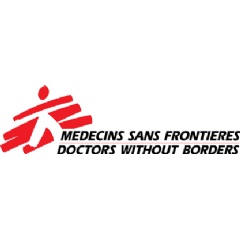Indonesia: Caring for Victims of the Sunda Strait Tsunami
Doctors Without Borders/Médecins Sans Frontières (MSF) continues to provide emergency medical care to survivors of the tsunami that struck Indonesia’s Sunda Strait on December 22, supporting health centers in Labuan and Carita, operating mobile clinics to reach patients who cannot access health facilities, and conducting medical follow-ups for the growing numbers of internally displaced people (IDPs).
“MSF has set up two types of emergency medical teams, fixed and mobile,” explains Dr. Dirna Mayasari, MSF deputy medical coordinator. “We are supporting the existing health centers and visiting the affected populations in the communities. In the health centers, MSF is providing medical care as well as ensuring that infection prevention control protocols are in place.” The MSF team has also initiated provision of psychological first aid for some admitted patients and will roll out a mental health program in the coming weeks.
As of December 31, MSF has conducted 326 medical consultations for 223 female patients and 103 male patients, 45 of whom were under five years old. The MSF emergency response team has also treated 16 pregnant mothers, and conducted medical follow-ups on 15 patients. The mobile clinic has reached 15 villages, providing wound care, prenatal care, and treatment of chronic illnesses, among other services, to patients unable to reach medical facilities.
There is an urgent need for effective medical follow-up for trauma patients and those with chronic diseases, antenatal and postnatal care as well as safe delivery for pregnant mothers, and early detection of possible disease outbreaks. MSF has also assessed the limited access to safe water and toilet facilities in most of the evacuation shelters. As the rainy season continues, the improvement of hygiene and sanitation services and food delivery systems and the provision of blankets and sheets are also priorities. We are coordinating with local authorities to help address these needs.
In Panimbang Sub-District, in southern Pandeglang, an MSF team conducted an initial rapid assessment of the needs in remote villages, where many people displaced by the tsunami are now scattered among host communities in the hills. “This [region] is one of the worst-affected areas and [is] difficult to reach,” said Dr. Nyi Wynn Soe, MSF medical coordinator. “There are many affected people in this area who have not yet received medical care and support.” The team treated and referred some patients during the assessment and will consider an expansion of medical activities in the region based on the results.
( Press Release Image: https://photos.webwire.com/prmedia/5/233572/233572-1.png )
WebWireID233572
This news content was configured by WebWire editorial staff. Linking is permitted.
News Release Distribution and Press Release Distribution Services Provided by WebWire.
